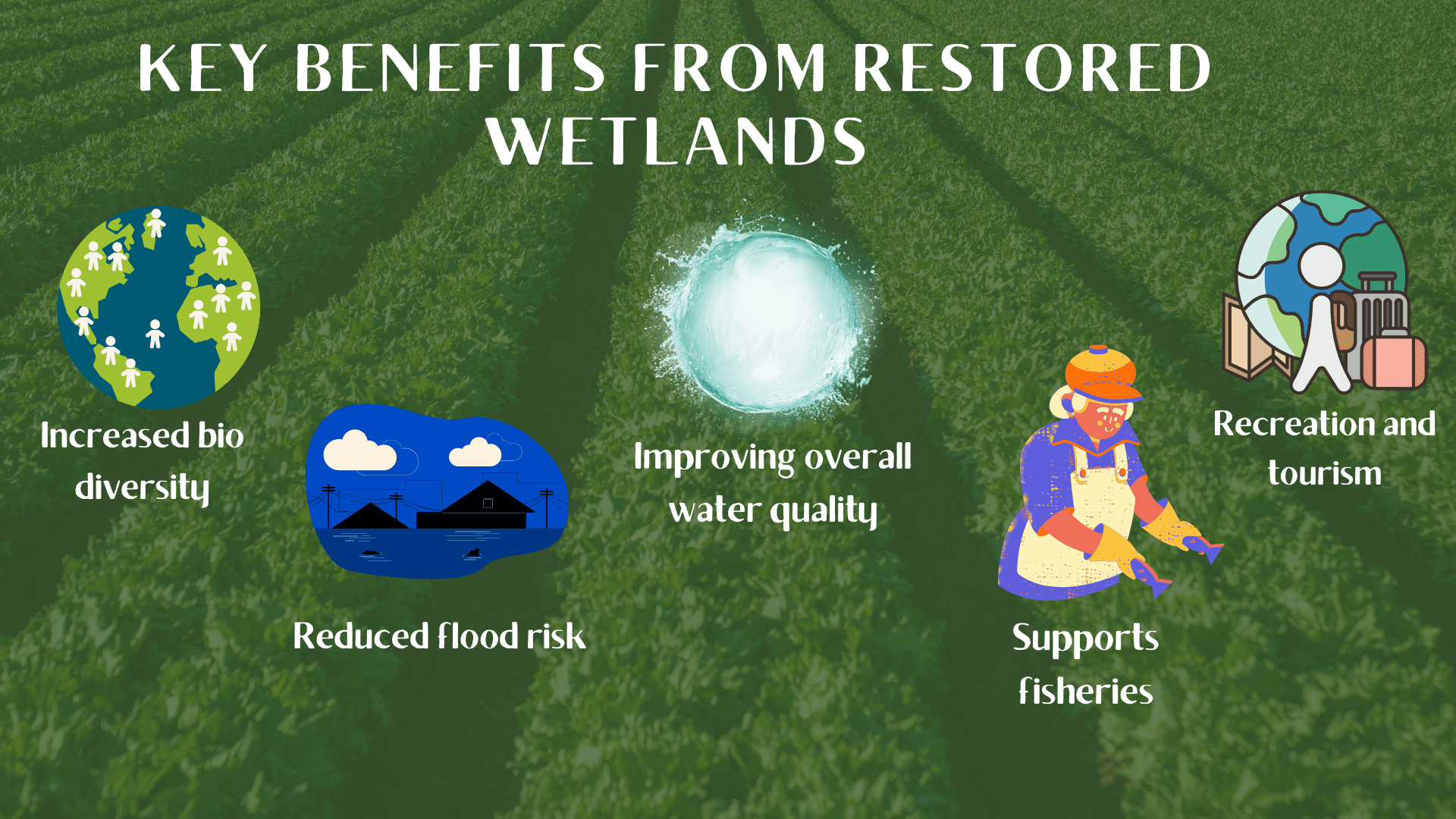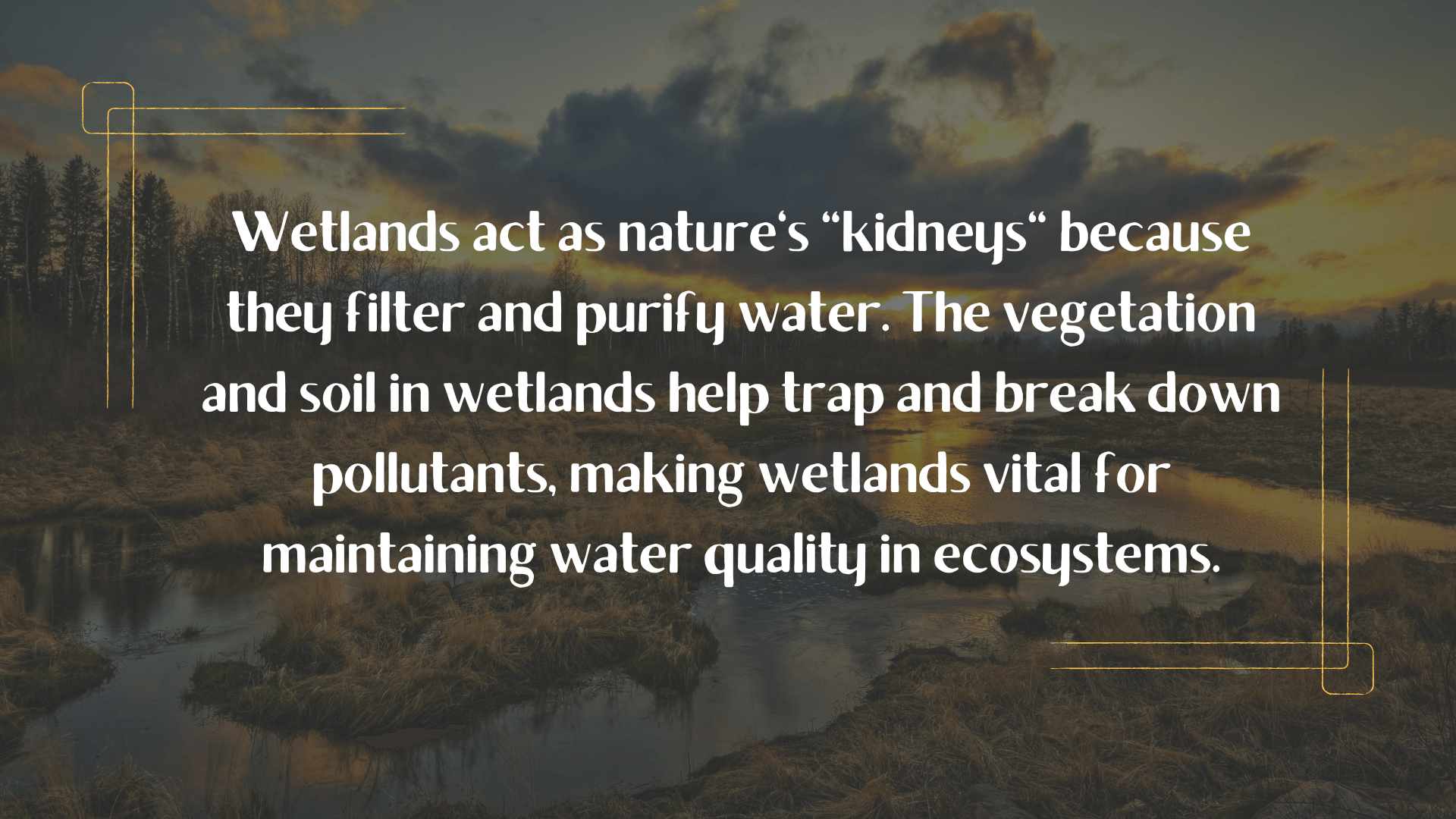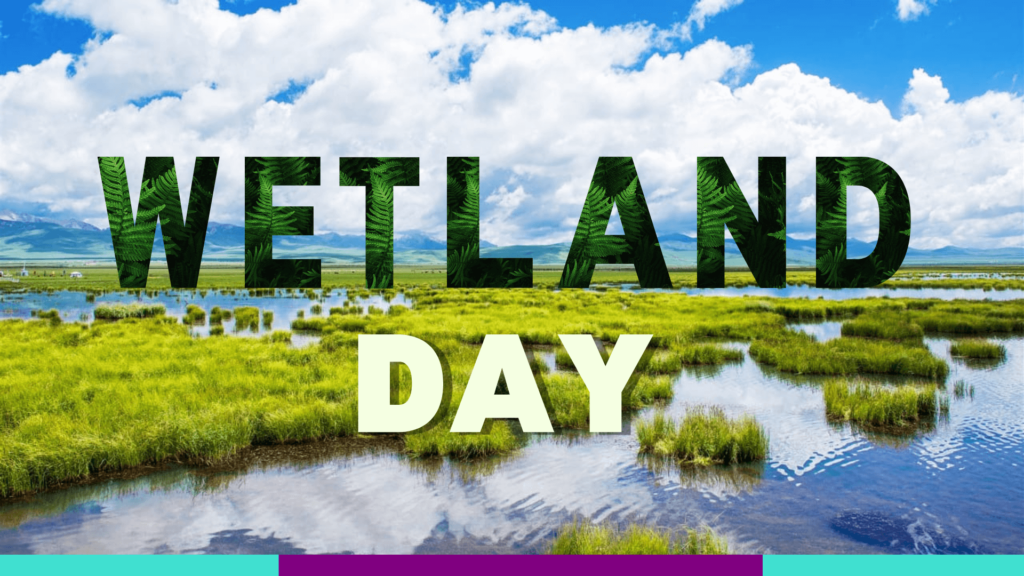World Wetlands Day is celebrated annually on the 2nd of February. It aims to raise awareness about the importance of wetlands for humanity and the planet. The day marks the date of the adoption of the Ramsar Convention on Wetlands in 1971, an international treaty aimed at promoting the conservation and sustainable use of wetlands. Wetlands are unique ecosystems that bridge the gap between terrestrial and aquatic environments. They are characterized by the presence of water, either seasonally or permanently, creating conditions that support a distinct variety of plant and animal life. Wetlands are often considered biodiversity hotspots due to the wide array of species they support. World Wetlands Day serves as an opportunity to raise awareness about the value of wetlands, the challenges they face, and the need for their conservation and sustainable management. Each year, the day has a specific theme to focus on particular aspects of wetland conservation. Governments, non-governmental organizations, communities, and individuals around the world use this occasion to organize events, activities, and initiatives that promote the understanding and protection of wetlands.
World Wetlands Day serves as an opportunity to raise awareness about the value of wetlands, the challenges they face, and the need for their conservation and sustainable management. Each year, the day has a specific theme to focus on particular aspects of wetland conservation. Governments, non-governmental organizations, communities, and individuals around the world use this occasion to organize events, activities, and initiatives that promote the understanding and protection of wetlands. Here are some key best practices in wetland restoration:
Here are some key best practices in wetland restoration:
1. Conduct thorough ecological assessments.
2. Restore natural water flow patterns to recreate the wetland’s ecosystem.
3. Identify and limit the factors causing harm to wetlands.
4. Clean up the mess in the degraded area.
5. Restore the original plants and wildlife.
A few key benefits from restored wetlands:
1. Increased biodiversity.
2. Reduce the risk of flooding.
3. Improving overall water quality.
4. Supports fisheries.
5. Contributes to Recreation and Tourism. The significance of wetlands extends far beyond their watery expanses; they are the silent guardians of biodiversity, flood control, and water purification. Through our collective efforts in understanding, restoring, and safeguarding wetlands, we pave the way for a sustainable future. World Wetlands Day is not merely a celebration but a compass guiding us toward a sustainable coexistence with the natural world. Let us remain committed to the ongoing journey of conservation, recognizing that our actions today shape the resilience and health of our planet tomorrow.
The significance of wetlands extends far beyond their watery expanses; they are the silent guardians of biodiversity, flood control, and water purification. Through our collective efforts in understanding, restoring, and safeguarding wetlands, we pave the way for a sustainable future. World Wetlands Day is not merely a celebration but a compass guiding us toward a sustainable coexistence with the natural world. Let us remain committed to the ongoing journey of conservation, recognizing that our actions today shape the resilience and health of our planet tomorrow.
Compiled By:

Rtr. Sumaiya Sadeek
(Junior Blog Team Member 2023-24)


